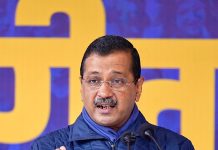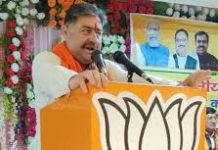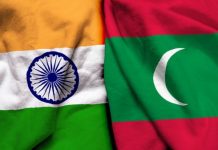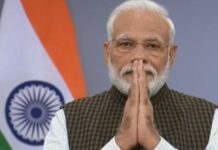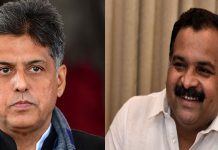
China’s master plan, which includes preparations on multiple fronts, to achieve and play a much bigger role in the global affairs for next three decades and beyond is now in the public domain
China’s master plan for a much bigger role in the affairs of the world for next three decades and beyond is now in the public domain. The Asian giant has already attained a “Xiaokang society” i.e. its citizens have come out from the abject poverty of the past, and now poised to become a dignified socialist society in 2049, when the nation celebrates 100 years as a Communist country.
The 28-year period between the current centenary celebrations of the Communist Party of China (CPC) in 2021 and the proposed mega celebrations in 2049 are expected to be impacting the world politics.
The venue of the CPC’s centenary celebrations was the Tiananmen Square in Beijing, which was once the venue of the massacre of democracy-loving students in 1989. It may be recalled that Chen Duxiu and Li Dazhao had founded CCP in 1921 with the help of the Far Eastern Russian Social Democratic Labor Party (Bolsheviks). The Bolsheviks had already deposed the tsars and has established their rule in 1917 October revolution. During 1927-1949, the CCP was engaged in a fierce civil war with the Kuomintang’s Nationalist government.
The “Chinese Dream” to establish a “Xiaokang society” spelt out in 2012 at the party congress, which incorporates the broader goals of modernization and elimination of poverty has already been achieved i.e. emancipation of the common people to have double income by 2021. It could be achieved despite pandemic Covid-19 and the “aggressive postures adopted in various parts of the world, from the Galwan Valley in the high Himalayas to the South China Sea.
During the period, 2020-21, the world reconciled to the emergence of a multi-polar world, almost ending the four-decade of America’s writ in the world as the sole Super Power. If China continues its emphasis on science and technology, its emergence as the only Super Power on the earth could not be ruled out trailing behind the European powers and US. In India, the Centenary Celebrations of the Indian National Congress (INC), the party which had ruled the country most of the years after 1947, held in 1985. Apart from discussing the country’s freedom movement, it also had focused on the country’s march towards the 21st century as a developed nation; however, the mission remains unfulfilled. It could be due to the frequent changes in the government, but in recent years despite a strong central government, the country’s goal appears to be “hazy” or unclear.
While the CPC has been blending its developmental goals with the past roots of the Confucius era, in India emphasis is being given to the ancient texts at the cost of the study of modern sciences and technologies. It was only after the second wave of the pandemic of Covid-19, the present Prime Minister, Narendra Modi, began focusing upon the modern researches and technologies, though personally he had been at the Indian space centre to encourage scientists. The present ruling elite, however, has wasted years, if not decades, on much emphasis on the rhetoric of the past or the great achievements of our ancestors.
There is no need to interpret, if Narendra Modi, did not send any congratulatory message to Xi Jinping. It was a party function and MOdi is not a party fuctionary. There were mixed responses from various countries across the continents. If Venezuela in Latin America greeted the CCP, USA’s response was cautious. The members of both political parties in the US House of Representatives proposed a resolution stating that the founding of the Chinese Communist Party is not a reason for celebration, and that the party should reflect on its own history.
Putin’s gesture
The Russian strongman, Putin in his message recalled that the USSR had held the sixth National Congress of the Chinese Communist Party in Moscow in 1928. The Federal Archival Agency of Russia released the related documents of the sixth congress to its Chinese counterpart. It is yet to be predicted whether Putin would be able to repair the “much rooted prejudices” between the two countries. Many believe that the Chinese aggression against India in 1962 could be attributed to the “differences” between the then Chinese leader, Nikita Khrushev and Mao Zedong.
Mao had harbored a past grudge that Russians did not sign a treaty of friendship on Mao’s request during his December 1949 visit to Moscow. Instead he was advised to take a trip around the country, to look around. Mao had responded to this suggestion that he have had only three tasks: eat, sleep and shit. Since he did not come to Moscow only to congratulate Stalin on his birthday, therefore, if USSR “does not want to conclude a treaty of friendship, so be it. He would fulfill his three tasks.”
An attempt was made to mend this breach during Khrushev’s visit to Beijing in1958. Interestingly, on the second day of their meetings, August 1, 1958, Mao received Khrushchev somewhere altogether surprising: his swimming pool. This was all the more of a surprise for Khrushchev, who couldn’t swim. The leader of the Soviet Union, a world superpower, was thus obliged to wear water wings. Mao, on the other hand, was a more than proficient swimmer. He could swim across the Yangtze River. Khrushchev later recalled, “It was Mao’s way of putting himself in an advantageous position. Well, I got sick of it…. I crawled out, sat on the edge, and dangled my legs in the pool. Now I was on top and he was swimming below!”
In spite of the recent exchanges of pleasantries, the Russian policy towards China needs close monitoring. The tensions between the two Communist countries had remained for years. It ultimate was known as the Sino-Soviet split. The origins of this split are many. There was the question of which state could claim intellectual leadership in the communist world. The Sino-Soviet split was a pivotal point in the Cold War. It made way for President Richard Nixon visit to Beijing on the 21st of February, 1972. This unprecedented trip would result in the Shanghai Communiqué, which marked the resumption of the United States’ relations with mainland China and the beginning of a new stage in the Cold War.
The congratulatory messages continued pouring into China during the first week of July from various continents and countries, but a few also dared to raise the issues related to human rights in the congratulatory messages. Taiwan has called for a democratic transition in mainland China on the CCP’s 100th anniversary. Similarly, Japan’s two prominent political parties, Liberal Democratic Party, and the Socialist Democratic Party have greeted Xi Jinping on the celebrations, but Yukio Edano, Leader of the Opposition, criticized the two parties for sending the congratulatory message.
In India few are surprised by the growing military presence of China in the high Himalayas. If the speeches of the CPC centenary celebrations are keenly studied, they indicate that China has already acquired a “Super Power” status. It cannot be ruled out that in between the two centenary celebrations, China would be “much more assertive on the global scale”. After all, it has become a Super Power during the 2019-2020, and is now “aspiring” to preside over a “uni-polar world by 2049, finally replacing USA on the earth. Thus, the fulcrum of the world power rivalries now quietly shifting towards Asia from the western hemisphere to the Asian theatre.
tehelkaletters@gmail.com

